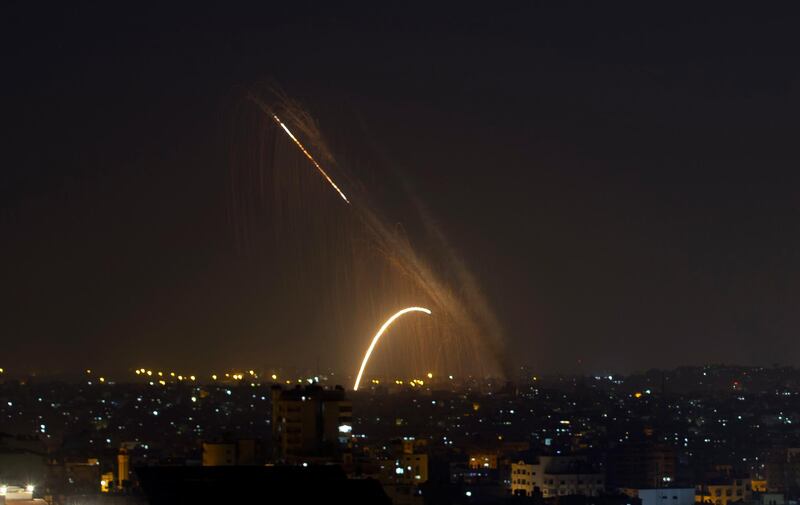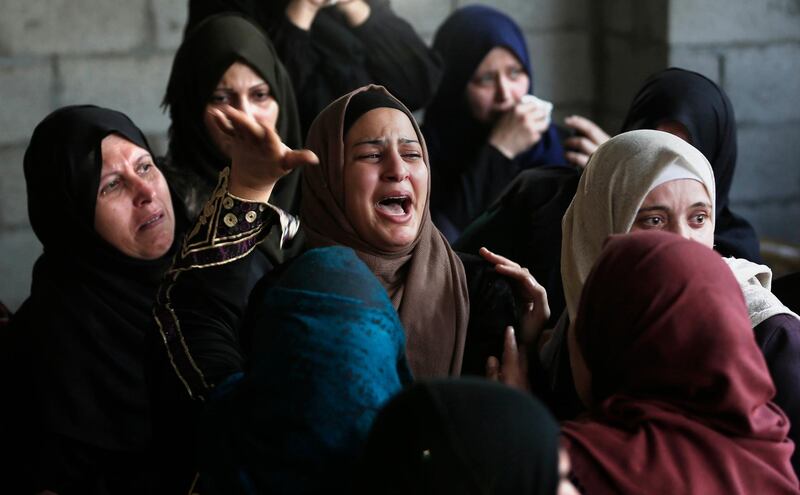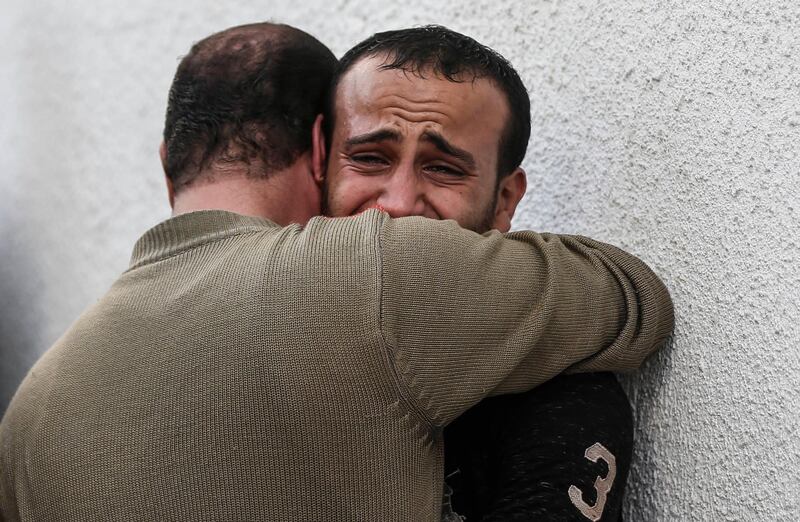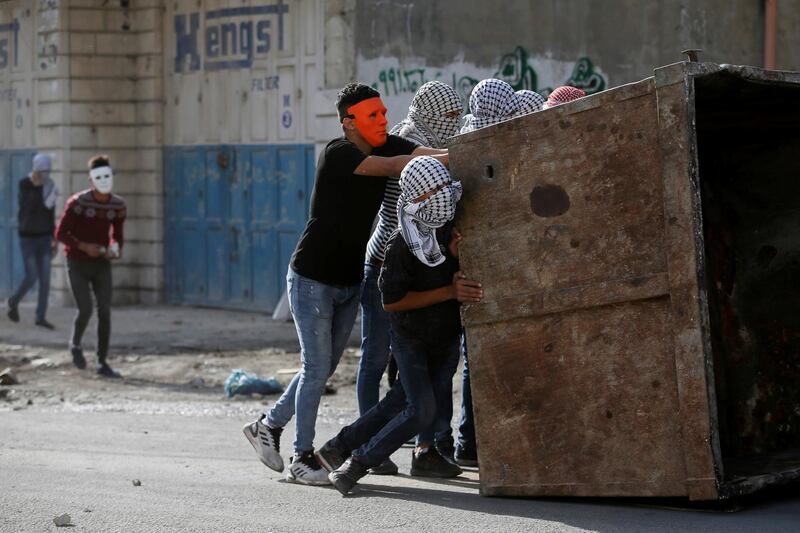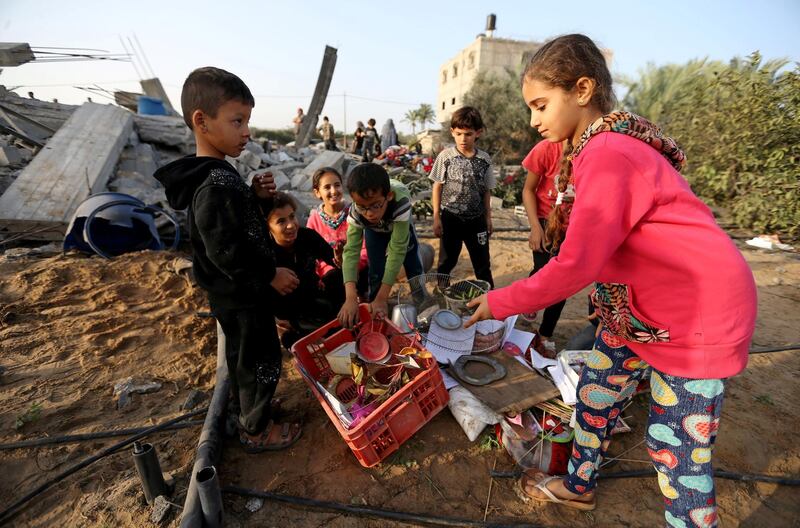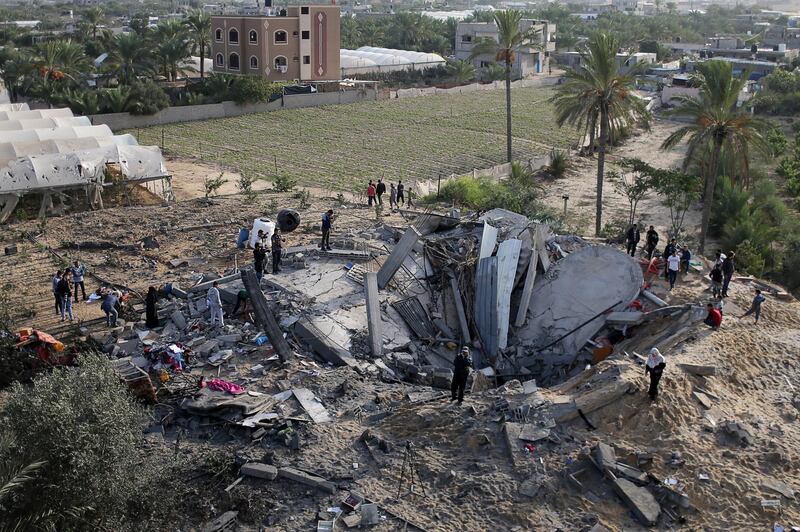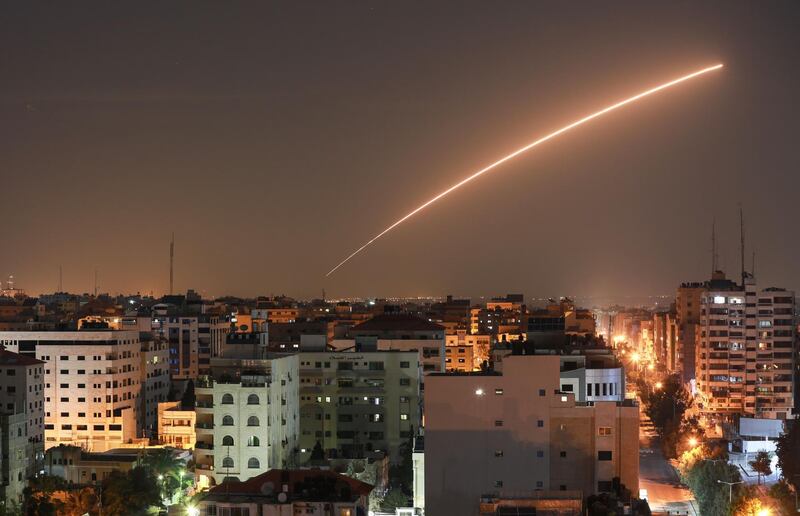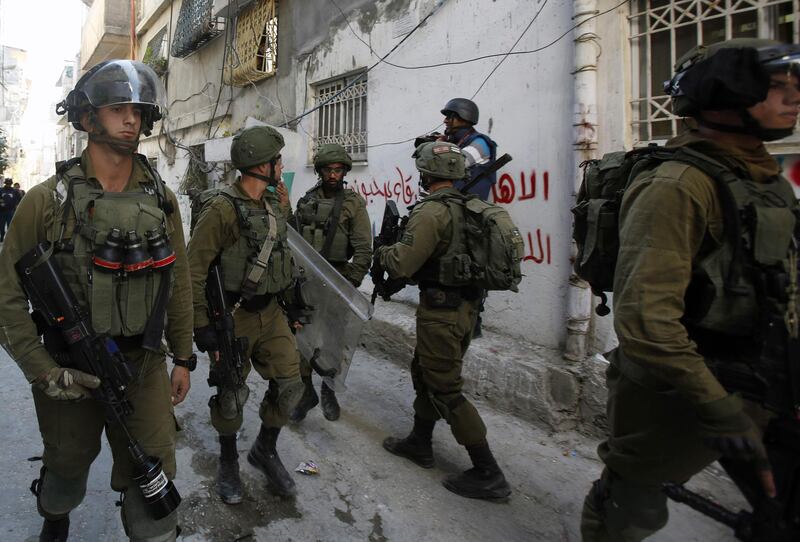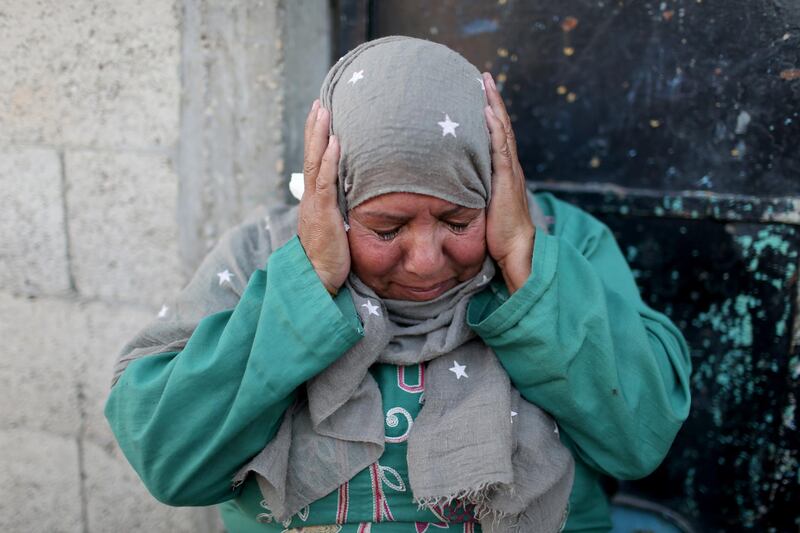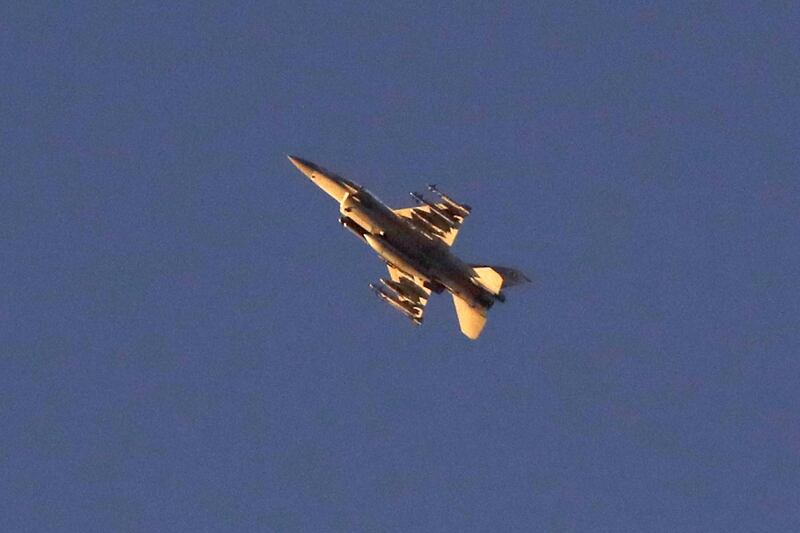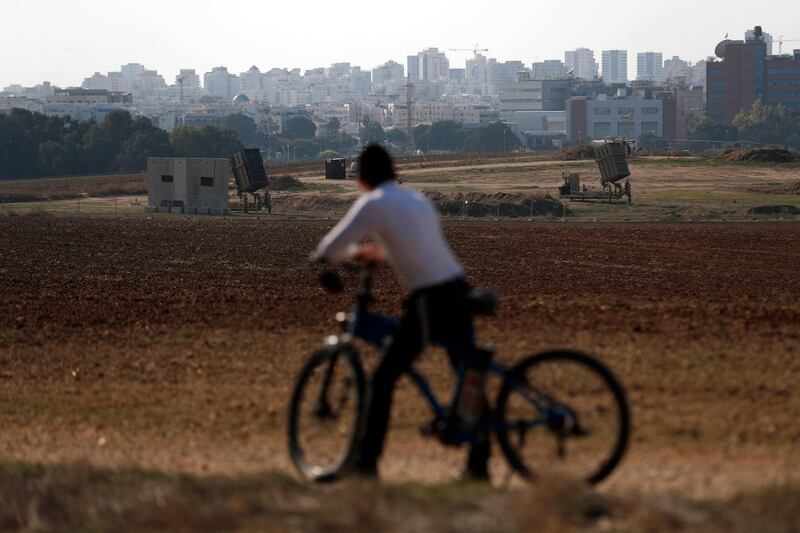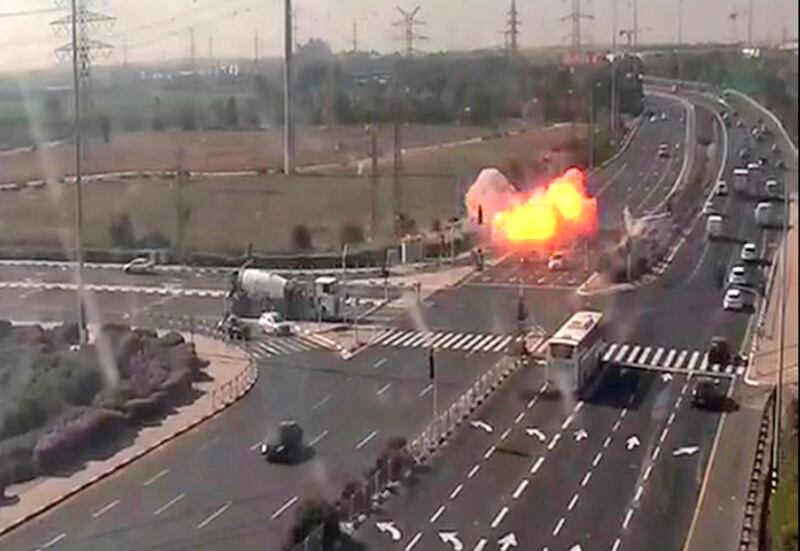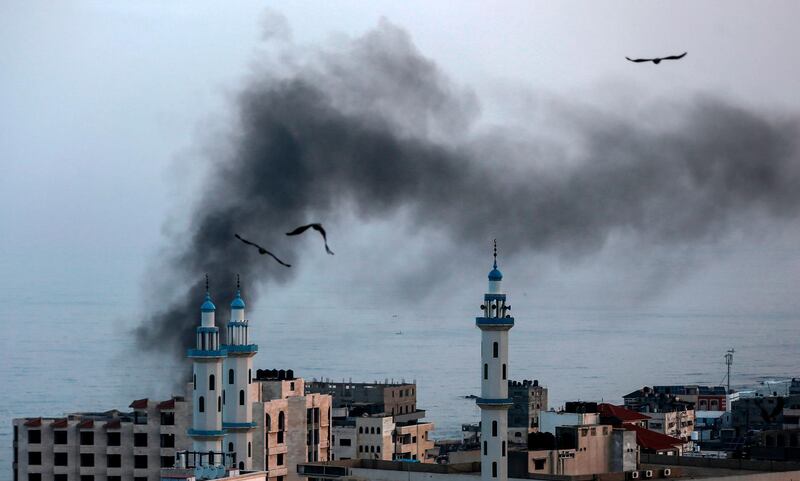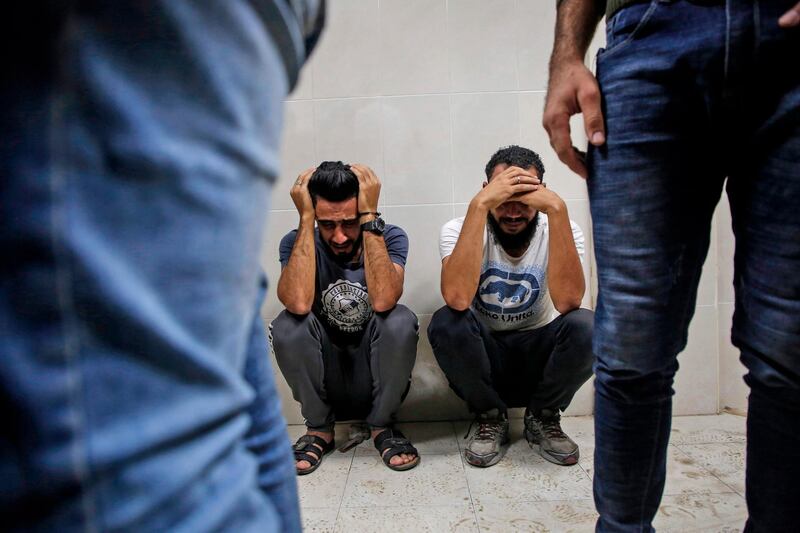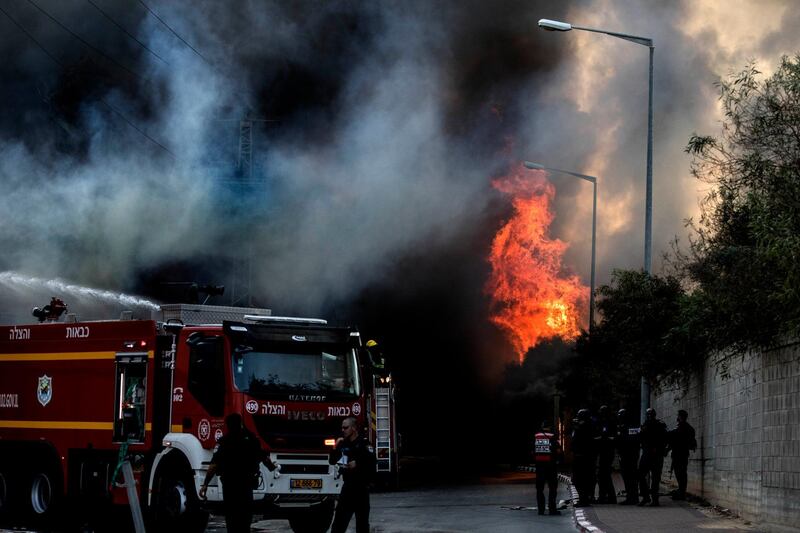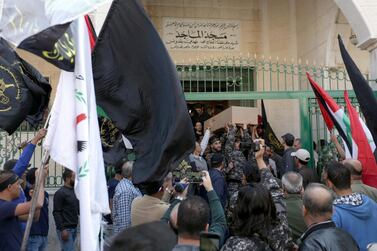Israel and the Islamic Jihad militant group in Gaza reached a ceasefire agreement on Thursday that ended two days of Israeli air strikes on the Palestinian enclave in which at least 34 people were killed.
The flare-up began when Israel killed an Islamic Jihad commander in air strike on Tuesday, triggering a barrage of rocket fire from Gaza.
Israeli media reported that five rockets were fired from Gaza hours after both sides announced the ceasefire. Two of the rockets were intercepted and no casualties or damage were reported.
An Islamic Jihad spokesman said a ceasefire brokered by Egypt went into effect from 5.30am.
Musab Al Berim said the truce was based on three demands presented by his group late on Wednesday: an end to Israel's targeted killings, a halt in the shootings of Palestinian protesters at weekly demonstrations along the Israeli border, and the easing of Israel's 12-year-old blockade that has crippled Gaza’s economy.
In a statement confirming the ceasefire, the Israeli military said its operation had targeted 25 Gaza militants, most of them from the Iran-backed Islamic Jihad. The Israeli air strikes targeted “terrorist infrastructure” above and below ground as well as Islamic Jihad naval positions, a spokesman said.
Islamic Jihad commander Abu Al Atta and his wife were killed in the strike on their home on Tuesday morning, triggering the heaviest exchanges between the Israel military and Gaza militants since May. Islamic Jihad fired about 400 rockets at Israel, which responded with scores of air strikes.
Palestinian officials reported 34 deaths, including a 7-year-old boy and six members of a single family. At least 16 of the dead were militants. Three Israelis were lightly wounded by shrapnel or shattered glass from the rocket fire, which paralysed parts of the country.
Th Israeli strike on Tuesday coincided with another in the Syrian capital of Damascus that targeted another Islamic Jihad commander. Israel did not acknowledge the strike in Syria, which failed to kill its target, but it appeared to be latest in an Israeli campaign against Iranian proxies in the region.
Israeli Foreign Minister Israel Katz said the policy of targeted killings had “proved itself” to be effective and that it would continue, despite the ceasefire.
“Everyone who was a top military official, who was set to carry out and was involved in terror or rocket firing against Israel was eliminated,” he told Israeli Army Radio. “And we intend to continue with this.”
Israel considers Gaza’s ruling Hamas militant group and Islamic Jihad, which both seek its destruction, to be terrorist groups.
Israel imposed a blockade on Gaza after Hamas seized control of the territory in 2007 from the internationally backed Palestinian Authority.
Hamas, which is much larger and more powerful than Islamic Jihad, stayed out of the latest fighting, indicating it would be brief.
Traffic returned to the streets of Gaza on Thursday after news of the ceasefire, although Israeli military drones could still be heard overhead. In Israel, the military’s Home Front command lifted restrictions on movement for civilians in all areas except for those neighbouring Gaza.
